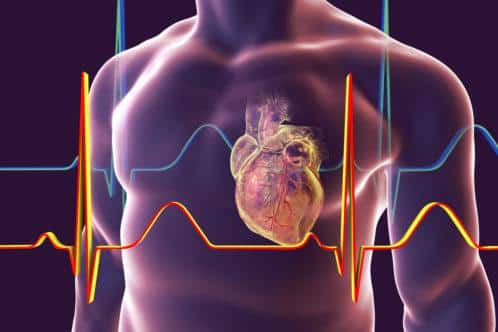In today’s fast-paced healthcare landscape, cardiovascular technology stands out as a vital and evolving specialty. As cardiovascular diseases continue to rank among the leading causes of death worldwide, medical institutions are placing more emphasis on diagnostics, intervention, and monitoring—areas where cardiovascular technologists play a central role. From echocardiograms and EKGs to assisting in catheterizations, these professionals work behind the scenes to support life-saving procedures and ensure accurate cardiac assessments.
With 2025 shaping up to be a transformative year for medical technology and patient care, the role of a cardiovascular technologist is more relevant than ever. Advancements in non-invasive imaging, wearable cardiac monitoring, and AI-integrated diagnostics are reshaping the field. I will dive into the expanding career paths, educational requirements, emerging trends, and salary prospects that define cardiovascular technology today, especially for students and professionals planning their next career move in healthcare.
Scope of Cardio Vascular Technology in 2025
Cardio vascular technology is expected to grow rapidly in 2025 due to rising heart disease cases and aging populations. Advanced diagnostics, AI tools, and increased global demand will drive career opportunities. It offers strong job stability and potential for specialization.
| Area of Growth | Description |
| Healthcare Demand | The rise in cardiac conditions is increasing the need for diagnostics and monitoring |
| Advanced Equipment | Development of AI-based diagnostic machines in cardiac labs |
| Research Opportunities | Increased focus on minimally invasive cardiovascular procedures |
| Government Initiatives | Assistance for training and placement initiatives in allied health sciences |
| Global Career Options | Openings in international hospitals and research labs across major countries |
What Does a Cardiovascular Technologist Do?
A cardiovascular technologist plays a critical role in supporting cardiologists during the diagnosis and treatment of heart and vascular conditions. They are trained to operate advanced medical equipment such as ECG machines, echocardiography devices, and cardiac catheterization tools. These professionals monitor vital signs, prepare patients for procedures, and assist during interventions like angioplasty or stent placement.
Their responsibilities also include analyzing test results and reporting findings to doctors for accurate medical decisions. In many cases, they help ensure patient safety and comfort during stressful cardiac evaluations. Their expertise significantly improves the speed and accuracy of cardiac diagnoses. Overall, they are a part of modern cardiovascular healthcare teams.
Educational Qualifications Required
Aspirants usually need to obtain a diploma, a bachelor’s degree, or an advanced certification in cardiovascular technology to become cardiovascular technologists. Institutions also offer training through hospital-based programs or technical schools, which include both classroom instruction and clinical experience.
| Institution Name | Location | Course Offered |
| All India Institute of Medical Sciences (AIIMS) | India | B.Sc. in Cardiac Technology |
| Johns Hopkins School of Medicine | USA | Cardiovascular Technology Certification |
| Narayana Hrudayalaya | India | Diploma in Cardiac Technology |
| George Brown College | Canada | Cardiovascular Technology Advanced Diploma |
| Apollo Medskills | India | B.Sc. in Cardiovascular and Thoracic Sciences |
Specializations Within the Field
Cardiovascular technology offers a range of specializations, allowing professionals to tailor their careers to specific areas of interest. Invasive cardiology involves assisting during catheter-based procedures and angioplasties in surgical settings. Non-invasive cardiology covers diagnostic procedures such as ECG, ECHO, and treadmill stress tests. Ultrasound imaging of the heart to evaluate its function and identify irregularities is the main focus of echocardiography technologists.
Vascular technologists assess blood circulation and detect obstructions in arteries and veins. Some professionals may even specialize in pediatric cardiology, focusing on heart conditions in children. Each path demands specific training, certification, and clinical exposure. Choosing a specialization can open doors to targeted job roles and advanced career growth.
Invasive vs Non-Invasive Cardiology Roles
Invasive cardiology roles require cardiovascular technologists to assist with internal procedures like cardiac catheterization, stent placements, and electrophysiology studies. These specialists work closely in operating rooms, cath labs, and during real-time surgical interventions. They must manage sterile equipment and monitor patient vitals throughout procedures. In contrast, non-invasive technologists perform tests that do not require entering the body, like ECGs, Holter monitoring, or echocardiography.
Skills Needed to Succeed in This Career
A successful cardiovascular technologist possesses a blend of technical expertise and interpersonal skills. A deep of human anatomy, especially the cardiac system, is for accurate diagnostics. Attention to detail is critical when operating complex machinery and interpreting results. Empathy and strong communication help build trust with patients undergoing stressful procedures.
In high-pressure emergencies, technologists need to keep their composure and concentration. Proficiency in handling advanced imaging tools and digital health records is increasingly valuable. Continuous learning is vital as new equipment and protocols emerge rapidly. Adaptability, teamwork, and a passion for healthcare complete the profile of a successful cardiovascular technologist.
Job Roles and Responsibilities
Cardiovascular technologists operate in a range of healthcare settings, such as hospitals, diagnostic laboratories, and research institutions. Their duties range from preparing patients for cardiac tests to operating ECG, ECHO, and stress testing machines. They ensure equipment is functioning properly and sterile. Analyzing diagnostic data and assisting physicians in treatment decisions are core tasks. Their role is technical yet patient-facing, demanding both precision and communication skills.
Expected Salary and Career Growth
Entry-level cardiovascular technologists in India typically earn between ₹3–5 lakhs per annum. In countries like the U.S., salaries can range from $50,000 to $80,000 based on qualifications. Specialized roles or supervisory positions can lead to much higher pay over time. Certifications, continued education, and experience contribute to faster growth. Long-term opportunities encompass roles in leadership, training, or academia.
Countries with High Demand for Cardiovascular Technologists
Global demand for skilled cardiovascular technologists is rising, especially in developed healthcare markets. The U.S., Canada, UAE, Australia, and Germany top the list for employment opportunities. These countries offer well-structured systems, modern facilities, and better pay scales. They also provide visa sponsorships and continuing education benefits for qualified professionals. Many Indian graduates aim for these destinations after gaining initial experience.
How AI is Transforming Cardio Vascular Technology

Artificial Intelligence is revolutionizing the way cardiovascular care is delivered and analyzed. AI-powered imaging tools can detect anomalies in heart scans, such as echocardiograms or CT angiograms, with enhanced precision. These tools reduce human error and speed up diagnosis, enabling earlier intervention for patients. Machine learning algorithms are now used to predict heart attack risks by analyzing large datasets.
AI-based Electronic Health Records (EHRs) help streamline workflow and improve personalized treatment plans. Smart devices also integrate with AI to provide continuous patient monitoring. As technology advances, cardiovascular technologists will need to adapt to AI-assisted environments. This transformation promises more accurate care, lower costs, and improved outcomes across cardiac healthcare systems.
Future Trends and Developments in the Field
The field of cardiovascular technology is rapidly evolving with innovations like wearable heart monitors and AI-assisted imaging. Tele-cardiology is gaining traction, allowing remote consultations and diagnostics in rural or underserved areas. Robotic-assisted cardiac procedures are improving precision in treatment. Integration of biosensors and real-time data analytics is enhancing the early detection of heart issues. These changes demand that technologists remain adaptive and tech-savvy. Continuous professional development will be for staying competitive and effective in this future-focused career.
Internship and Training Opportunities
Internships are a core component of cardiovascular technology education, providing practical exposure in real clinical settings. Most institutions collaborate with hospitals or cardiac labs to offer hands-on training. Interns how to operate equipment, assist in procedures, and interpret diagnostic data. Leading hospitals sometimes offer advanced internships after graduation, enhancing job-readiness. These programs often turn into permanent employment opportunities for skilled candidates. Practical experience through internships helps build confidence and career momentum in this field.
Work-Life Balance in This Profession
Work-life balance in cardiovascular technology can vary widely based on the workplace environment. Those employed in outpatient diagnostic centers or labs often enjoy standard 9-to-5 schedules, offering predictable hours and personal time. However, technologists working in hospitals or emergency care units may need to be on-call, including nights or weekends. The role can be physically and mentally demanding, especially during critical patient procedures.
That said, many professionals value the dynamic nature of the job, which keeps workdays engaging and rewarding. Shift-based roles are also common, especially in larger facilities that operate 24/7. Despite the occasional long hours, technologists often report high levels of job satisfaction. Balancing patient care with personal life requires planning, but the flexibility in job types supports different lifestyle needs.
Steps to Start a Career in Cardio Vascular Technology
Begin by completing your higher secondary education (Class 12) with a focus on science subjects like Physics, Chemistry, and Biology. The next step is to enroll in a diploma or bachelor’s degree program specializing in cardiovascular technology. Choose an institution that offers a good blend of theory and hands-on training for better job readiness. During or after the course, you will typically undergo clinical training or an internship to gain real-world experience. Certification may be required based on your country’s regulations—check with local medical boards for specifics.
Wrapping up
Cardiovascular technology is no longer just a support role—it’s a frontline career contributing to the fight against the world’s most pressing health issues. With state-of-the-art equipment, growing awareness about heart health, and a surge in demand for trained experts, professionals in this field are positioned for both stability and fulfillment. The job market is evolving, and those who invest in the right training and certification are likely to see a strong return in terms of career growth and personal satisfaction.
Whether you’re a recent graduate, a healthcare worker looking to specialize, or someone planning a strategic career shift, cardiovascular technology offers a dynamic path with long-term potential. As we toward 2025 and beyond, this field promises not only job security but also the opportunity to make a meaningful difference in people’s lives every day.
FAQs
What is the scope of cardiovascular technology in 2025?
The scope of cardiovascular technology in 2025 is expanding rapidly as heart-related conditions continue to rise globally. Both developed and developing nations are investing heavily in cardiac healthcare infrastructure. There’s a growing demand for non-invasive diagnostics, skilled technologists, and trained professionals in echocardiography and catheterization labs. Private hospitals, government institutions, and cardiac specialty centers are actively hiring.
What is the duration of training to become a cardiovascular technologist?
Becoming a cardiovascular technologist typically takes between 2 to 4 years, depending on the academic route. A diploma course may take 1.5 to 2 years, while a bachelor’s degree usually takes 3 to 4 years. Both programs include clinical internships, which last from 6 to 12 months, offering real-world exposure. Some countries also require licensure or certification, which may add a few more months of preparation.
What are the career options after studying cardiovascular technology?
Graduates in cardiovascular technology have a variety of career paths available across clinical, research, and academic settings. They can work as cardiac technologists, ECHO specialists, cath lab assistants, vascular sonographers, or telemetry technicians. Opportunities also exist in cardiac rehabilitation centers and outpatient diagnostic clinics.
Is cardiovascular technology a good career for women?
Cardiovascular technology is an excellent career choice for women, offering a blend of stability, respect, and growth. The field allows for flexible work schedules, especially in outpatient or diagnostic settings. Many women thrive in this profession due to its patient care focus and steady demand across urban and rural healthcare centers. Work-life balance is achievable in non-emergency roles, and there’s scope for both part-time and full-time employment.
Are there government jobs available for cardiovascular technologists?
Yes, cardiovascular technologists can secure government jobs in public hospitals, defense medical units, and rural healthcare missions. These roles are often advertised through national or state-level public service commissions and health department recruitment drives. Government positions offer steady salaries, job security, and structured promotions. Benefits such as medical coverage, housing allowances, and pension plans make them highly desirable.
What skills are most important for success in this field?
A successful cardiovascular technologist must have a strong background in medical science and attention to detail. Strong technical skills are required to handle complex equipment and interpret diagnostic data accurately. Communication and empathy are equally important when working with patients during stressful procedures. Professionals must stay updated with advancements in cardiac technologies, including AI-based tools and mobile diagnostics.
Can cardiovascular technologists work abroad after completing their education in India?
Yes, Indian cardiovascular technologists can pursue careers abroad, provided they meet the destination country’s certification and licensing requirements. Countries like the USA, Canada, the UK, the UAE, and Australia have ongoing demand for skilled technologists. However, each country has its own credential evaluation and licensure exams that applicants must clear. English language proficiency tests like IELTS may also be required.








